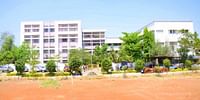MIT Arts, Commerce & Science College Pune Popular Courses
MIT Arts, Commerce & Science College Pune offers 14 courses at UG, PG courses in Full Time mode. MIT Arts, Commerce & Science College Pune UG Fees is Rs 1.97 Lakhs - 3.11 Lakhs. MIT Arts, Commerce & Science College Pune PG Fees is Rs 1.43 Lakhs - 2.48 Lakhs. The top courses at the institute include B.Sc, BCA, BBA.
- MIT Arts, Commerce & Science College Pune B.Sc Fees ranges from Rs 2.84 Lakhs to 3.11 Lakhs for the 3 year program.
- MIT Arts, Commerce & Science College Pune BCA Fees is Rs 3.11 Lakhs for the 3 year program.
- MIT Arts, Commerce & Science College Pune BBA Fees ranges from Rs 2.97 Lakhs to 3.11 Lakhs for the 3 year program.
Full Time Courses
Top Courses | 1st Year Fees | Total Fees | Eligibility | Ranking |
|---|---|---|---|---|
B.Sc (Cyber Security & Digital Science) +3 More B.Sc Courses | ₹94,600 | ₹2.84 Lakhs | 10+2 | 164 out of 211 by India Today View More |
| BCA (Computer Science) | ₹1.04 Lakhs | ₹3.11 Lakhs | 10+2 | 25 out of 167 by India Today View More |
BBA (International Business) +2 More BBA Courses | ₹1.04 Lakhs | ₹3.11 Lakhs | 10+2 with 40% | 67 out of 120 by India Today View More |
M.Sc (Computer Science) +2 More M.Sc Courses | ₹1.08 Lakhs | ₹2.16 Lakhs | Graduation with 50% | 164 out of 211 by India Today View More |
| B.Com (General) | ₹65,500 | ₹1.97 Lakhs | 10+2 | 147 out of 229 by India Today View More |
Top Courses, Fees & Eligibility
1st Yr Fees
₹ 94,600Exams accepted
Eligibility10+2
1st Yr Fees
₹ 99,000Exams accepted
Eligibility10+2 with 40%
1st Yr Fees
₹ 1,03,500Exams accepted
Eligibility10+2
1st Yr Fees
₹ 65,500Exams accepted
Eligibility10+2
1st Yr Fees
₹ 1,08,000Exams accepted
EligibilityGraduation with 50%
1st Yr Fees
₹ 99,000Exams accepted
EligibilityGraduation
1st Yr Fees
₹ 71,500Exams accepted
EligibilityGraduation
- Stream
- Course Tag
- Course
- Batch
Reviews found (2)
Relevance and Comprehensiveness Specific Aspects Influencing Decision: Updated Content: The curriculum includes the latest developments and trends in the field, ensuring that students are learning cutting-edge information. Diverse Subjects: A broad range of subjects covered, from theoretical foundations to practical applications, allows for a well-rounded education. Industry-Relevant Skills: Courses are designed to impart skills directly applicable to the industry, such as data analysis, programming, or specific technical proficiencies. Preparation for Real-World Applications and Academic Pursuits: Practical Experience: Many courses include internships, lab work, or projects that simulate real-world challenges, providing hands-on experience. Research Opportunities: Students are encouraged to participate in research projects, which are critical for those considering further academic pursuits. Career Readiness: Workshops, guest lectures from industry experts.
Read Full ReviewWhen choosing a course, specific aspects of the curriculum can significantly influence the decision. Factors such as the breadth and depth of the topics covered, the inclusion of practical or hands-on experiences, and the alignment with career goals or academic interests are crucial. Courses that offer interdisciplinary approaches, up-to-date content reflecting current industry trends, and opportunities for research or internships can be particularly appealing. The curriculum's effectiveness in preparing students for real-world applications or further academic pursuits is another key consideration. A well-designed curriculum integrates theoretical knowledge with practical skills, ensuring that students are equipped to tackle real-world challenges. This can include case studies, project-based learning, internships, and industry collaborations. Courses that emphasize critical thinking, problem-solving, and communication skills are especially valuable for future academic and professional
Read Full ReviewAsk your question
Similar Colleges You Might Be Interested In
- Similar Colleges
- Near By
![Regional Ayurveda Institute for Fundamental Research - [RAIFR]](https://static.zollege.in/public/college_data/images/appImage/6424_NRIBAS_APP.jpg?tr=h-100,w-200,c-force)
Regional Ayurveda Institute for Fundamental Research - [RAIFR]
Pune, Maharashtra![National Research Centre for Grapes - [NRCG] Manjri](https://static.zollege.in/public/college_data/images/appImage/6691_NRCG_New.jpg?tr=h-100,w-200,c-force)
National Research Centre for Grapes - [NRCG] Manjri
Pune, Maharashtra![Agharkar Research Institute -[ARI]](https://static.zollege.in/public/college_data/images/appImage/16380_BORI_APP.jpg?tr=h-100,w-200,c-force)
Agharkar Research Institute -[ARI]
Pune, Maharashtra![Bharati Vidyapeeth University, Interactive Research School in Health Affairs - [IRSHA]](https://static.zollege.in/public/college_data/images/appImage/10565_IRSHA_New.png?tr=h-100,w-200,c-force)

Dr. Arvind B. Telang Senior College of Arts, Science and Commerce
Pune, Maharashtra
![MIT Arts, Commerce & Science College - [MITACSC]](https://static.zollege.in/public/college_data/images/logos/16223123391599039873355667plogo.png?tr=h-94,w-94,c-force)

![Regional Ayurveda Institute for Fundamental Research - [RAIFR]](https://static.zollege.in/public/college_data/images/logos/col6424.jpg?tr=h-40,w-40,c-force)
![National Research Centre for Grapes - [NRCG] Manjri](https://static.zollege.in/public/college_data/images/logos/1422249219images.png?tr=h-40,w-40,c-force)

![Agharkar Research Institute -[ARI]](https://static.zollege.in/public/college_data/images/logos/1423652034olkkgt.png?tr=h-40,w-40,c-force)
![Bharati Vidyapeeth University, Interactive Research School in Health Affairs - [IRSHA]](https://static.zollege.in/public/college_data/images/logos/col10565.jpg?tr=h-40,w-40,c-force)
